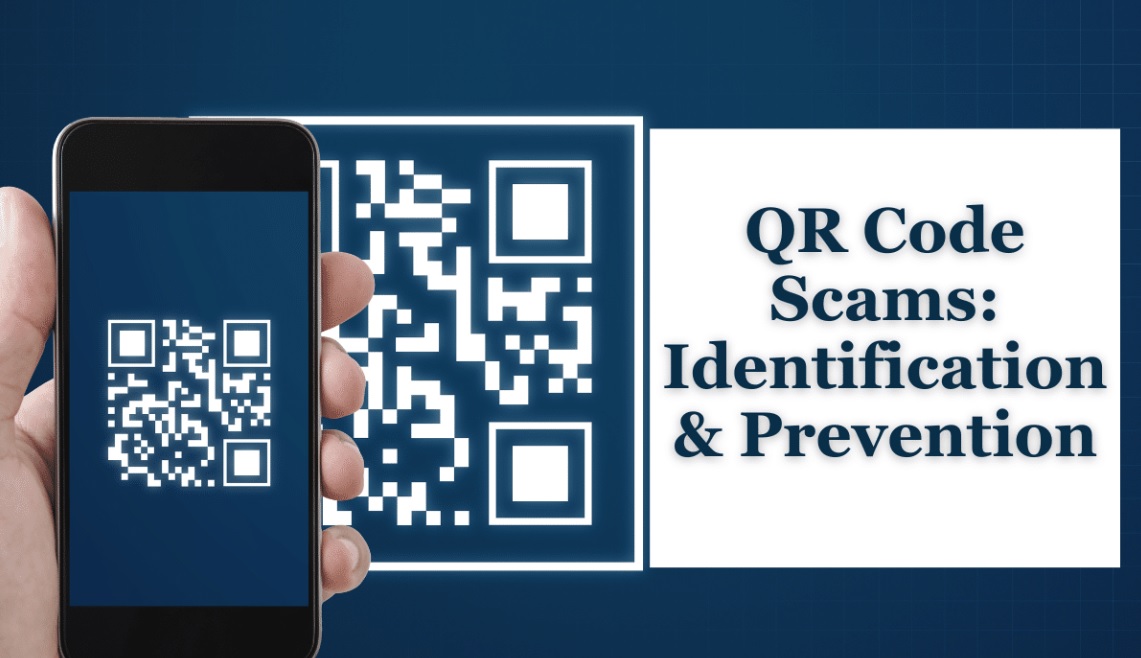
QR codes, short for Quick Response Codes, are the gateway between the physical and digital realms, offering a seamless bridge in our interconnected world. Just point your camera at a QR Code and you'll be conveniently directed to a website. Easy, right? However, their simplicity and widespread adoption have opened the door for innovative cybercriminals to exploit. These tech-savvy fraudsters ingeniously manipulate QR codes, turning them into tools for executing scams, potentially leading to significant security breaches and financial damage. As a small business owner in the digital age, it's imperative to understand the nature of QR code scams and the strategies to effectively recognize and thwart them. This article will arm you with essential tips and insights, empowering you to safeguard your business against the hidden dangers of these seemingly innocuous codes.
Understanding QR Code Scams
QR code scams present a significant threat to small businesses and their customers (and all consumers!), exploiting the convenience of QR codes by redirecting users to malicious websites, phishing schemes, or other fraudulent activities. Cybercriminals cleverly disguise these traps, using tactics ranging from phony promotions to embedding harmful links within seemingly innocuous codes.
Key Indicators to Watch For:
-
Unfamiliar Origins: Exercise caution with QR codes from unknown or questionable sources. Prioritize codes from known, reputable businesses, and steer clear of those received via unsolicited messages or emails. Even some menu QR codes at restaurants have been found to have been tampered with. Pretty easy for someone to slap another sticker to cover the original.
-
Complex URLs: Genuine QR codes typically lead to simple, direct URLs. If a QR code directs you to a URL filled with random characters or unnecessary complexity, it’s likely a scam.
-
Inconsistent Branding: Fraudsters often replicate QR codes resembling those from well-known brands. Examine for any discrepancies in color schemes, logos, or design that might signal a counterfeit. Keep in mind that modern scams may be very difficult to detect visually.
-
Absence of Encryption: Trusted sources usually encrypt their QR codes for added security. An unencrypted code might be a sign of a scam.
-
Suspicious Offers: Scammers attract victims with incredible deals or prizes. If an offer linked to a QR code seems too good to be true, it probably is. You know the saying: If it sounds to good to be true, it probably is!
Strategies to Avoid QR Code Scams:
-
Confirm the Source: Always verify the origin of a QR code before scanning. When in doubt, contact the related business directly to confirm its legitimacy.
-
Secure QR Code Scanners: Opt for a QR code scanner app with built-in security features. Some apps can warn you about potentially harmful codes.
-
Inspect the URL Carefully: Before engaging with a website from a QR code, type the URL manually into your browser to check its legitimacy. Avoid clicking on dubious links.
-
Implement Multi-Factor Authentication (MFA):
- What is MFA? It’s an additional security layer requiring multiple forms of identification before granting access to an account or system.
- Why Use MFA? MFA safeguards your accounts from unauthorized access, providing protection even if a QR code scam or phishing attempt compromises your login details.
While QR codes offer unparalleled convenience, vigilance is key to preventing scams. Small business owners and customers alike must recognize the signs of QR code fraud, verify sources diligently, and employ robust security measures like Multi-Factor Authentication. Regular cybersecurity training and awareness can also play a vital role in ensuring both personal and customer data remain secure in the face of evolving cyber threats.
As a managed service provider in the Boston area, we've had a lot of conversations with local businesses about how to strengthen cybersecurity. Have a discussion with your team at your next team meeting, and encourage your team to bring the conversation to their dinner table. The more you know about various cyber threats, the less likely you'll be to fall for one!
.png)